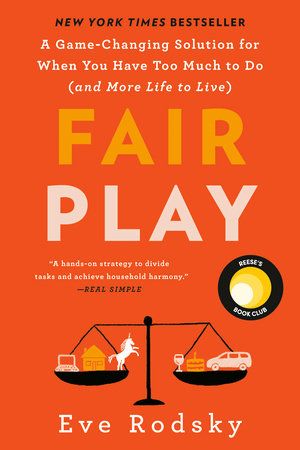Relationships
Ending the Chore Wars Sparks Harmony and Better Sex
Partners who value time create greater passion for pursuits and each other.
Updated August 1, 2023 Reviewed by Michelle Quirk
Key points
- Domestic chore disputes divide a home as the dust settles literally and figuratively.
- Time choice equals perspective. Each can be rebalanced and altered.
- Couples who share in the domestic work relax more together and have better sex lives.
For therapists, evergreen topics that keep reoccurring in couples and families include sex, money…and the unequal division of domestic and child-rearing tasks.
Chore wars resemble the day’s bad rash that itches less at times, but never completes recedes.
The conundrum has been called the second shift, worked largely by women who historically have shouldered additional tasks after working 40 to 60 hours per week in their careers.

When Eve Rodsky realized this in her own marriage and life, she used her law degree, mediation experience, and personal inspiration to create Fair Play, a game-changing book to solve domestic overload, as well as the Fair Play Deck, cards that create conversation about what’s important and equitable on the home front.
Fair Play also became a documentary, produced by Jennifer Siebel Newsom, for those couples and households grappling with resentment built off of a too-busy existence.
The Load Shared Equals Domestic Unity
Rodsky provides the premise that we all have the absolute same hours in any given day—24. No fewer for men nor women; however, men often get more choice over how they parcel their time.
Partners and at-home children operate with false notions that “women can do it” because of the following fallacies: Women are better multi-taskers, it’s quicker if a woman does it anyway, and women often earn less in the workplace so, therefore, they should do more at home.
If you hear an alarm bell, it’s because these irrational beliefs are likely sounding in brains of women nearby. Using the cognitive-behavioral technique of checking out the evidence, each of the above could be disputed. Eve Rodsky calls these toxic messages. The documentary experts comment upon the invisible work that is often had on the backs of one partner over the other.
Several suggest that men who open their minds and abilities to fair play see better harmony in their intimate relationships and more frequent sex. Children whose fathers do more than 40 percent of the childcare tend to have better cognitive development, fewer behavior problems, and healthier relationships in their own lives. We therapists know that this serves as the best relationship model of what a future partnership looks like, as well, for our families of origin serve as a marriage template.
How to Start the Conversation
If your domestic life tilts in one direction, overburdening one of you, here are pointers to begin this convo and see more immediate results:
- Soft starting topics is a Gottman-approach therapy skill. I advise my clients to avoid “why” questions and “you”-starting statements. Each puts the other on the defensive. It can lead to stonewalling, criticism, and contempt. All make up the four horsemen of the apocalypse, which will lead to relationship demise—in any type of relationship, meaning partners as well as parent–child.
- Speak in “I messages.” This means you’ll speak from the heart, which usually lands better on the recipient.
- Time communication when strong emotion is low and cognition (one’s ability to think clearly) is high. Feedback delivered when one partner is flooding with emotion never ends well. Taking that time out to cope better, relax a little, and return to the conversation is wise, not a way out.
- Explain that the mental load of anticipating tasks, assigning, explaining, and reminding begins to chip away at the overwhelmed/overburdened partner, who soon has little to offer in other domains such as one’s everyday demeanor, work performance, and, certainly, one’s romantic life.
- Realize that a partner’s difficult personality traits may impede all of the above. The most softly started phrasing may land on a self-absorbed spouse as an attack, no matter how well-delivered and well-intended. A sense of entitlement may loom larger than a commitment to equality. If honest and respectful communication doesn’t deliver some change, try counseling with a therapist. And, sadly, if this doesn’t result in some equilibrium, you may have to make other choices to hire out what one partner refuses to do…or divorce.
Give your relationship with your partner—or with your children and others residing in your home—the best foundation for domestic harmony.
I learned of this approach from clients who tried this and loved how it raised their awareness of all that a typical family encounters as tasks. This alone normalizes the chaos that occurs in many couples’ encounters.
It brings a universality to the dilemmas, and by rebalancing tasks that bring pleasure or simply must get accomplished, it leads to valuing one another’s time as opposed to devaluing it.
Copyright © 2023 by Loriann Oberlin, MS
References
Rodsky, Eve, Fair Play: A Game-Changing Solution for When You Have Too Much to Do (New York: G.P. Putnam's Sons, 2019).
The Fair Play Deck: A Couple's Conversation Deck for Prioritizing What's Important (New York: Clarkson Potter, 2020)
Fair Play: A Documentary, written, produced and directed by Jennifer Siebel Newsom, on streaming platforms




